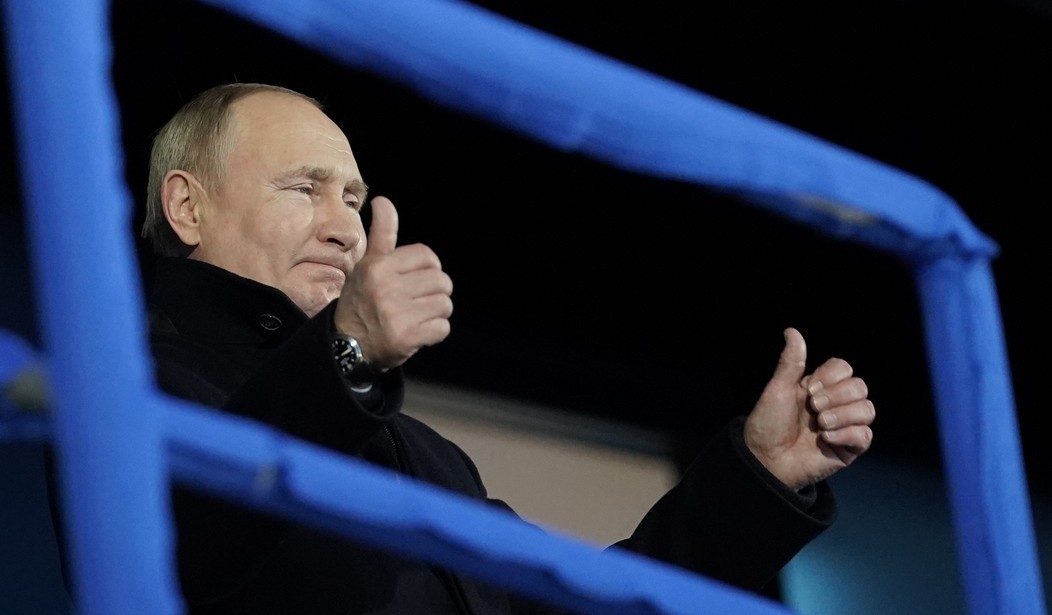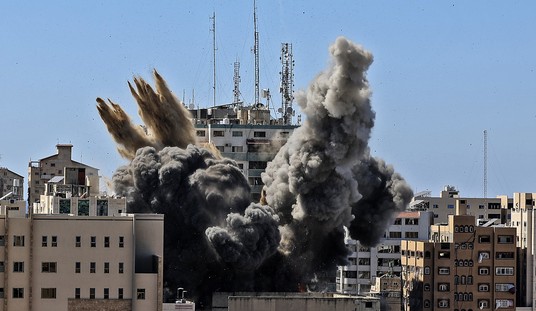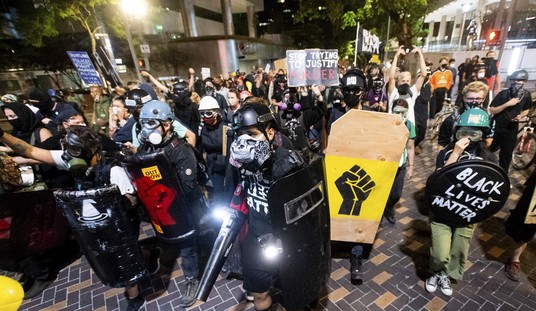With the one-year anniversary of the Russian invasion of Ukraine upon us, it’s time to take stock of how things have been going. The land battles in Ukraine draw most of the headlines and it’s obvious that Russia’s military has vastly underperformed in terms of the original expectations of many analysts. But the other element of the allied response to the invasion was the economic warfare being waged against Moscow. You may recall that Joe Biden gave a speech one month into the war, preemptively declaring victory, famously saying that the ruble “has been reduced to rubble.” But did that turn out to be true? The Associated Press published a review of the Russian economy over the past year and found that Biden’s predictions about the impact of the sanctions were, to put it charitably, overly optimistic.
Russia is now the world’s most heavily sanctioned country, according to U.S. officials. The ruble did in fact take a temporary dive and has been slipping again in recent months. But as the war nears its one-year mark, it’s clear the sanctions didn’t pack the instantaneous punch that many had hoped.
The ruble trades around the same 75-per-dollar rate seen in the weeks before the war, though Russia is using capital controls to prop up the currency. And while Russia’s economy did shrink 2.2% in 2022, that was far short of predictions of 15% or more that Biden administration officials had showcased. This year, its economy is projected to outperform the U.K.’s, growing 0.3% while the U.K. faces a 0.6% contraction, according to the International Monetary Fund.
The report finds that the sanctions have produced a “slow erosion” of Russia’s industrial capacity, but that has been offset by the country’s energy exports which continue to thrive. Many American and European businesses closed their doors in Russia after the war began, including popular outlets such as McDonald’s and Starbucks. But Russian investors quickly sensed an opportunity and began opening new knockoff versions of those businesses to fill the vacuum.
At the end of last year, a congressional research report concluded that the sanctions have indeed created downward pressure on the Russian economy. But it also stated that the economic actions taken by Washington and NATO had failed to deliver “the economic knockout” that many had predicted or at least hoped for. Sanctions have been placed on more than 2,000 Russian companies, government officials, oligarchs and their families. And yet most of them are still seen carrying on business much as they used to.
If the sanctions continue or even increase over the course of this year, it’s still possible that we’ll see more of a collapse in Russia’s GDP and overall economic health. But the reality today is that it simply hasn’t happened yet. Russia has been able to forge new alliances with countries that have refused to participate in the sanctions while strengthening its economic ties with existing allies such as China and Iran.
It is not farfetched to argue that these disruptions to the global financial ecosystem have hurt the economies of the United States and multiple European nations more than they have hindered Russia. (Of course, the Democrats’ spending sprees have probably done more to cripple the American economy than anything Putin could do.)
Meanwhile, the ability of the Kremlin to keep the Russian people in line was also underestimated by the west. It had been hoped that the sanctions would make the daily lives of Russian families more difficult, leading them to pressure Putin to end the war. But at the end of 2022, even the Washington Post was reporting that support for the war among the Russian people was as high as 70%.
Granted, those poll numbers may be misleading and many Russians probably fear to speak out against the war out of fear of government reprisals. But if anyone was expecting the Russian people to rise up in significant numbers and either force an end to the war or even overthrow Putin, they have been completely disappointed in those hopes. The Kremlin maintains a tight grasp over the public flow of information and Russian men are still dutifully showing up to put on a uniform and replace their fallen comrades when the call comes.
We don’t know how long this war will grind on and it’s still possible that the sanctions may wind up having a greater effect. But after a full year, the theory of “economic warfare” is looking rather ragged. And Moscow shows no signs of wavering.








Join the conversation as a VIP Member